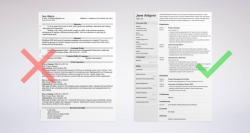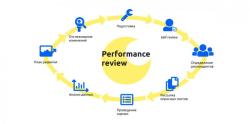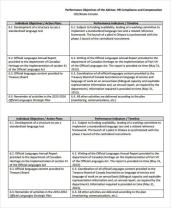What can you do with degree in ethics?
A degree in ethics can open up a range of career options in various fields where ethical considerations and decision-making are crucial. The skills developed through an ethics degree, such as critical thinking, ethical reasoning, and moral analysis, are transferable and applicable to a diverse set of professions. Here are some potential career options for individuals with a degree in ethics:
Ethics Officer/Coordinator:
- Work for organizations to develop, implement, and oversee ethical policies and practices. Ethics officers ensure that the organization operates in an ethical and socially responsible manner.
Compliance Specialist:
- Ensure that organizations adhere to relevant laws, regulations, and ethical standards. Compliance specialists help organizations avoid legal issues by promoting ethical conduct and integrity.
Corporate Social Responsibility (CSR) Manager:
- Focus on implementing and managing initiatives that align a company's operations with ethical, social, and environmental responsibility. CSR managers work to ensure that organizations contribute positively to society.
Human Resources Specialist:
- Address ethical issues related to workplace behavior, diversity, equity, and inclusion. HR specialists with an ethics background can help create ethical workplace cultures and handle employee relations issues.
Nonprofit Sector Roles:
- Work for nonprofit organizations in areas such as advocacy, fundraising, or program management. Ethical considerations are particularly important in the nonprofit sector.
Teaching and Education:
- Become an ethics educator at the high school or college level. Teach courses in philosophy, ethics, or related subjects, fostering ethical reasoning and critical thinking skills in students.
Journalism and Media Ethics:
- Work as a journalist or media ethics consultant, ensuring that reporting adheres to ethical standards. Addressing issues such as objectivity, accuracy, and fairness is essential in this field.
Bioethicist or Medical Ethics Consultant:
- Engage in ethical considerations within the healthcare and biomedical fields. Bioethicists work on issues related to medical treatment, research ethics, and patient rights.
Government and Public Policy:
- Work in government agencies or non-governmental organizations (NGOs) on issues related to policy development, social justice, and human rights. Ethical considerations are integral to public policy decisions.
Legal Profession:
- Pursue a career in law with a focus on ethics, working on cases related to legal ethics, human rights, or corporate responsibility.
Research and Think Tanks:
- Conduct research on ethical issues for think tanks, research institutions, or policy organizations. Addressing ethical concerns is often a critical component of policy analysis.
Philanthropy and Grantmaking:
- Work for foundations or philanthropic organizations, ensuring that grantmaking aligns with ethical principles and contributes positively to societal goals.
Business Consulting:
- Provide ethical consulting services to businesses, assisting them in navigating complex ethical challenges and ensuring ethical business practices.
These are just a few examples, and the versatility of an ethics degree allows individuals to find meaningful work in a variety of sectors. The specific career path may depend on the individual's interests, specialization within ethics, and additional skills acquired through education or experience. Networking, internships, and gaining practical experience can enhance employment prospects in the chosen field.
What career paths open up with a degree in ethics?
While a degree in ethics itself might not directly lead to specific job titles, its focus on critical thinking, moral reasoning, and decision-making opens doors to diverse career paths across various sectors. Here are some potential avenues you can explore with an ethics degree:
Business and Corporate Ethics:
- Compliance Officer: Ensure ethical conduct within companies by monitoring compliance with regulations and codes of ethics.
- Corporate Social Responsibility (CSR) Specialist: Develop and implement ethical business practices and social responsibility initiatives.
- Sustainability Consultant: Analyze and advise companies on integrating ethical and sustainable practices into their operations.
- Business Ethics Consultant: Guide organizations on navigating ethical dilemmas and making responsible business decisions.
Public Policy and Government:
- Policy Analyst: Analyze policy proposals and advise policymakers on their ethical implications.
- Lobbyist: Advocate for ethical legislation and policies on behalf of organizations or groups.
- Government Ethics Officer: Oversee ethical conduct within government agencies and investigate potential misconduct.
- Non-Profit Program Manager: Develop and manage programs that address ethical issues in areas like healthcare, environmental protection, or human rights.
Law and Legal Fields:
- Legal Ethics Consultant: Advise law firms and lawyers on ethical legal practices and professional conduct.
- Bioethics Researcher: Analyze ethical dilemmas in healthcare and life sciences.
- Environmental Law Advocate: Champion environmental protection and sustainability through legal advocacy.
- Human Rights Lawyer: Fight for human rights and social justice through legal action.
Education and Research:
- Ethics Professor: Teach ethics courses at universities or colleges.
- Ethics Researcher: Conduct research on ethical issues in various fields.
- Curriculum Developer: Develop educational materials and programs on ethics for different audiences.
- Journalist or Writer: Cover ethical issues and analyze their implications for society.
Additionally, your ethics degree can strengthen your candidacy for positions in various other fields, such as consulting, communication, human resources, marketing, and international development, by providing you with valuable skills in critical thinking, communication, and problem-solving.
Remember, your career path with an ethics degree will depend on your specific interests, skills, and experience. Combining your degree with internships, volunteer work, and additional professional development can help you tailor your skills and gain valuable experience for your desired career trajectory.
Feel free to ask if you'd like to explore specific career options or resources related to a particular field you're interested in! I'm happy to help you further navigate the diverse possibilities an ethics degree can offer.












